As lithium batteries become a more common choice in RV solar, it could increase the information overload of dealers and customers alike. Lithium battery: best for your RV? Here are some tips to measure the benefits of each type of battery to your customers and help them make more informed decisions.
If you leave your home frequently throughout the year to go outside to recharge, you'll need a battery that will last a long time. Even on the mountain, you need someone to lean on. You'll need a battery that lasts more than three years, even if you're often disconnected. In short, you need to find a battery that lasts. For RVs, nothing beats the best lithium-ion batteries.
Lithium batteries can last for up to 3,000 cycles. This means if you go camping and charge your battery as often as 100 times in a year, your battery can last up to 30years! Did that catch your interest? If it did, here are my highly recommended lithium RV batteries for you to choose from.
Why Lithium RV Batteries?
We’ve put together a solid guide to help you choose the best lithium batteries for your RV. First, though, we need to answer the obvious question: what makes lithium batteries the best RV choice, to begin with?
One reason is that these batteries can save you money over a long period. Rechargeable batteries save money compared to other resources, and they also offer a ton of convenience. After all, who wants to worry about the power in the middle of your travels?
Benefits of Lithium
Lithium batteries are a popular choice for RVs because they are the best to store extra solar power when an RV decides to install solar for off-grid camping.
The discharge rate of lithium batteries is lower than that of lead-acid batteries. Because of their low emission rate, storage capacity is constant. Lithium batteries can be reduced to 80% or less, compared with about 50% for lead-acid batteries.
Lithium batteries can be continuously charged and discharged at a high ampere rate without causing injury. Lead-acid batteries cannot handle high charge-discharge currents. These high currents shorten their life cycles and release large amounts of hydrogen, putting the battery at a high risk of catching fire. Lead-acid batteries have three charging phases, each with a reduced charging current. Lithium, on the other hand, can handle the same charge to 100% charge. It charges much faster due to its constant high charging capacity.
Lighter lithium-ion batteries are lighter than lead-acid batteries and offer a longer cycle life. They weigh about a third as much as lead-acid batteries. If your battery must be in front of your RV and it is lead-acid, you must be careful if you use lead-acid and you do not exceed the knot weight limit. With lithium, you don't have to worry about weight, because you can add more batteries if you need to.
Longer life lead-acid batteries have an average life of 400 times or less, while LiFePO4 batteries have a life of more than 3,000 times. It depends on the size of the battery. Because they can be released, it doesn't affect their lifespan as much as lead-acid does.
Lithium-ion batteries do not need to be checked regularly, as some lead-acid batteries do. They have no liquid electrolytes to check and no corroded terminals. Lead-acid batteries are known for requiring an alkaline solution to clean terminals to remove corrosion.
No exhaust requires no exhaust from lithium batteries, which means you can store them anywhere in your RV. If you are installing a full solar system, this is very convenient because you have more options where to store your RVs without fire concerns, such as lead-acid. If you want to store them under your bed, you can use them without worrying about the problems that lead-acid can cause. Lead-acid batteries release toxic, acidic vapors as they are charged and discharged. That means they must be in an area where steam can escape.
Smaller lithium-ion batteries are not only lighter, but also smaller. They take up less space than lead-acid batteries. If you have to keep your battery in a small compartment, a smaller lithium battery can make a difference.
When lithium batteries discharge, they maintain the voltage. Lead-acid, on the other hand, loses its voltage in a discharge. This makes lithium-ion batteries last longer and more efficient. Lithium batteries have a high-performance quality, which is why Elon musk's tesla Powerwalls are built around lithium batteries. Most importantly, lithium batteries are safer and last longer. These batteries have no vents, so you can put them anywhere without worrying about causing a fire. Ordinary lithium batteries last five times longer than lead-acid batteries, saving you time and money.


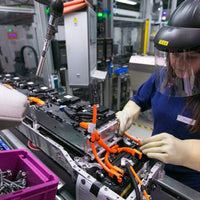
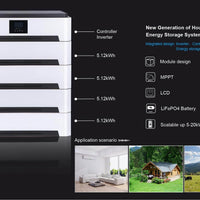
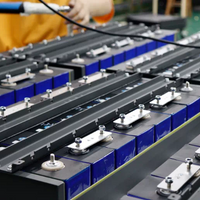
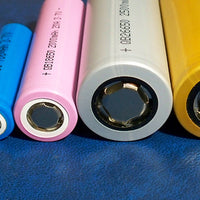
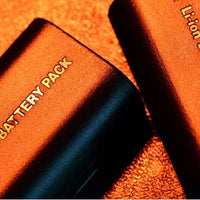

0 comments